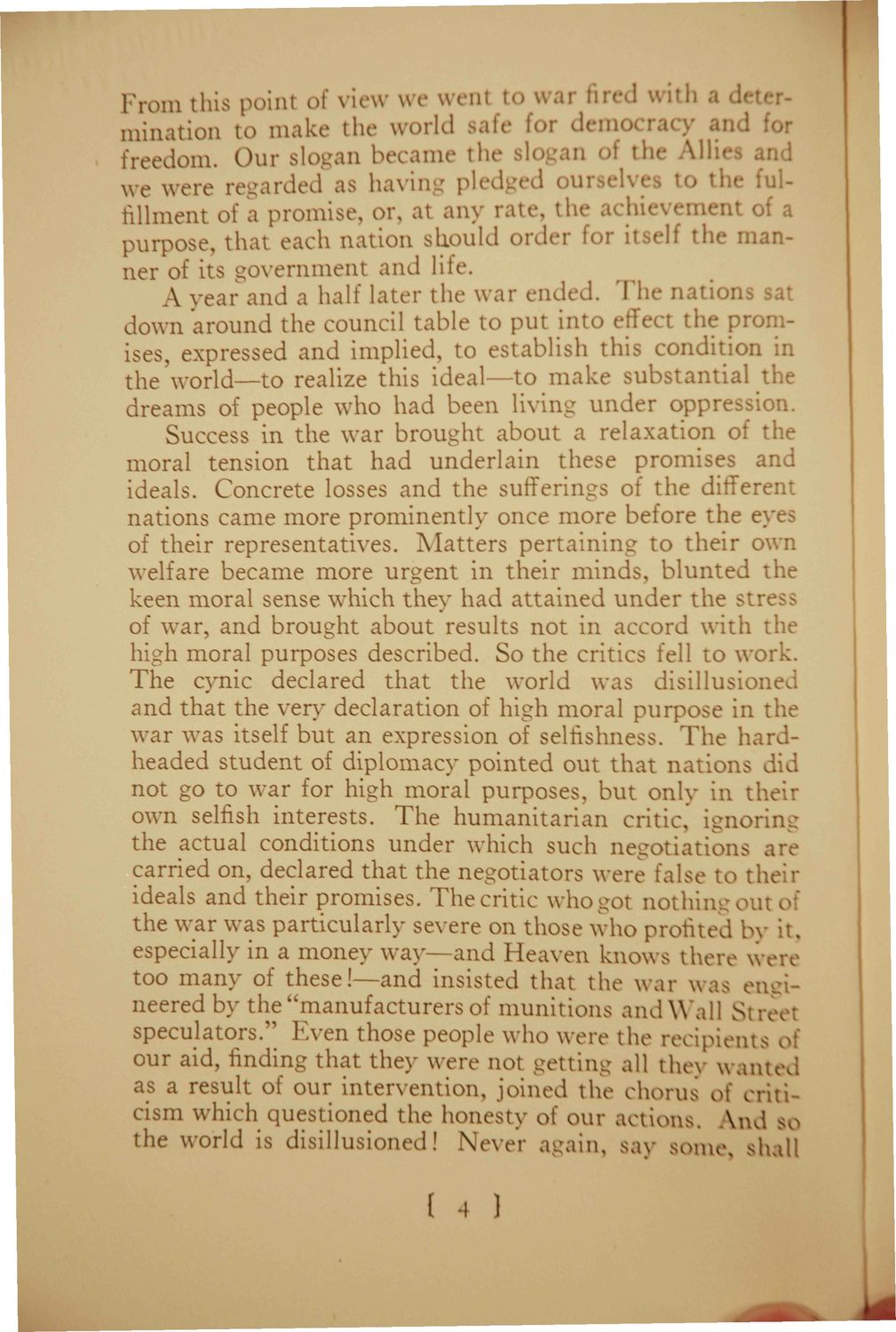| |
| |
Caption: Commencement - 1927
This is a reduced-resolution page image for fast online browsing.

EXTRACTED TEXT FROM PAGE:
From this point of view we w n; to w r fired w th a i < mination to make the world .sale for democi and I r freedom Our slogan became th< lo n f the Allies and dod as having pled ?d wo wore Movement purpose, that each nation should order for itseli die manner of its government and lite. A year and a half later the war ended. The nations sat down around the council table to put into effect the pro ises, expressed and implied, to establish this condition in the world—to realize this ideal—to make substantial the dreams of people who had been living under oppression Success in the war brought about a relaxation ol the moral tension that had underlain these promises and ideals. Concrete losses and the sufferings of the different nations came more prominently once more before the eyes of their representatives. Matters pertaining to their own welfare became more urgent in their minds, blunted the keen moral sense which they had attained under the stre.of war, and brought about results not in accord with the high moral purposes described. So the critics fell to work. The cynic declared that the world was disillusions and that the very declaration of high moral purpose in the war was itself but an expression of seltishness. The hardheaded student of diplomacy pointed out that nations did not go to war for high moral purposes, but only in their own selfish interests. The humanitarian critic, icnorin. the actual conditions under which such negotiations a: carried on, declared that the negotiators were false to tin r ideals and their promises. The critic who cot nothing out o the war was particularly severe on those who profited by it. especially in a money way—and Heaven knows there were too many of these!—and insisted that the war was engineered by the "manufacturers of munitions a n d \ \ i\\ St a speculators." Even those people who were the recipients of our aid, finding that they were not getting all they wantc as a result of our intervention, joined the chorus oi critism which questioned the honesty of our a< tions. And s< •orld is disillusioned! Never again, sa> som . shall •I
| |